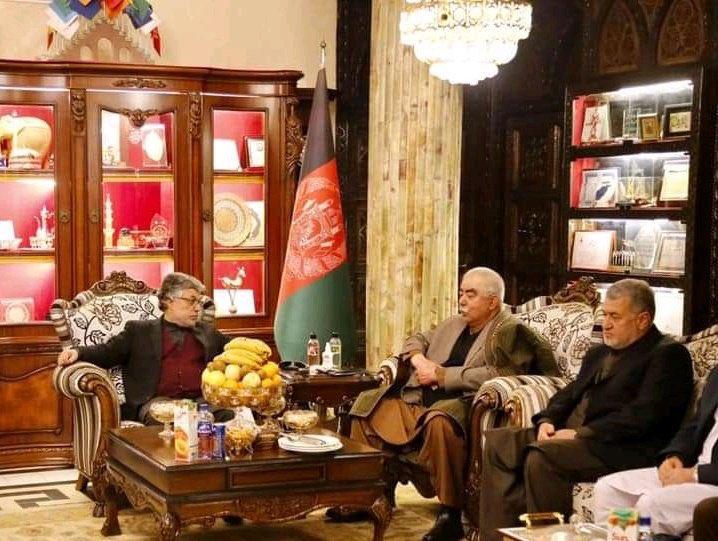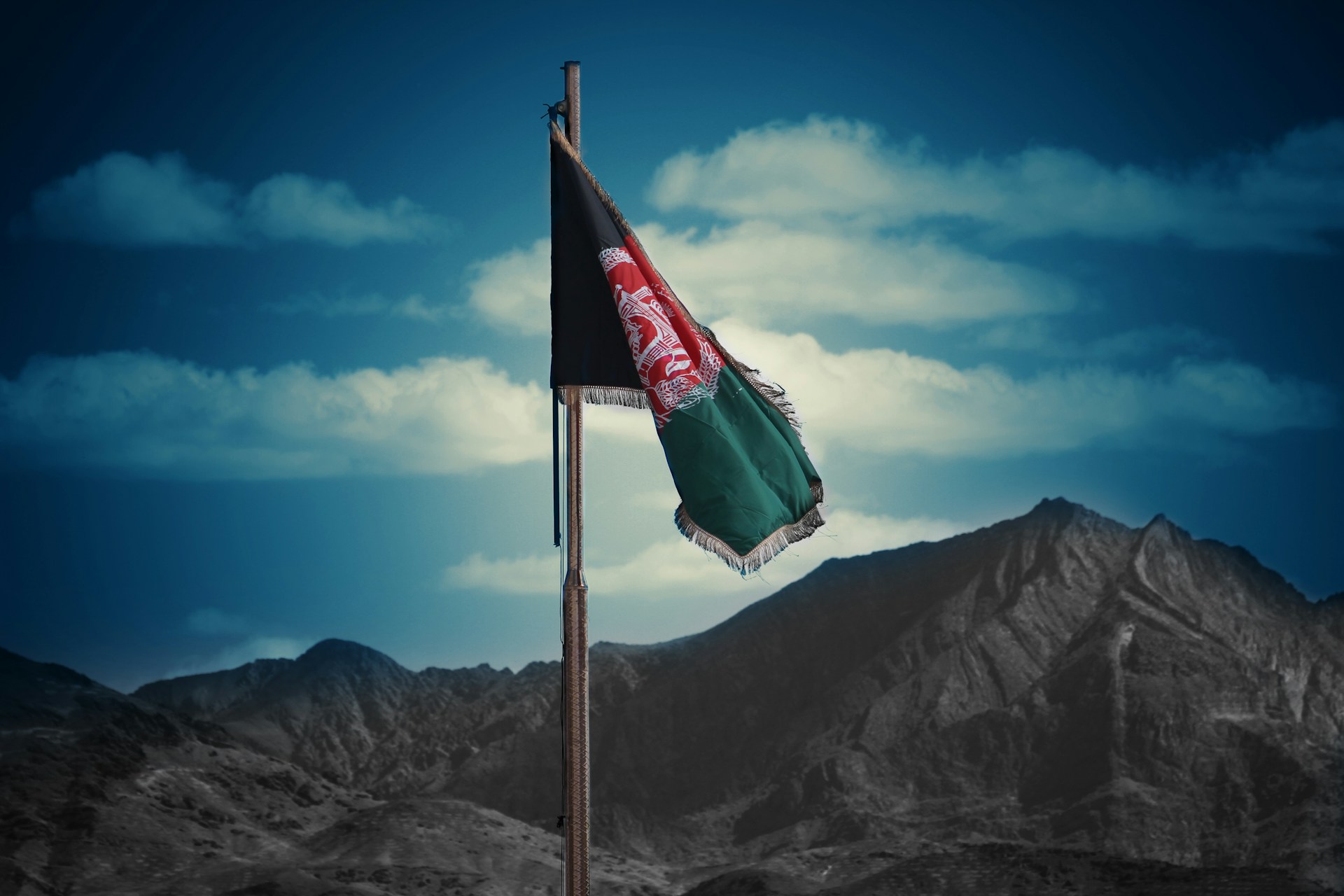Humayoon Babur
Without legitimacy, unity, or the backing of the Afghan people, the concept of an exiled government is little more than an illusion—set to become another whisper lost in the tumult of Afghanistan’s complex and troubled political reality.
Sher Shah (name changed for security reasons), a resident of Mazar-e-Sharif in Balkh Province, is one example of an Afghan citizen whose life has been deeply affected by the post-2001 dynamics in Afghanistan.
After the Taliban’s collapse in 2001, many Afghans faced land grabs and a lack of rule of law, particularly by powerful warlords. Sher Shah’s land was seized by one such warlord in 2005. “I waited for years. I had legal documents, but I feared for my life,” Sher Shah explained. However, in 2021, with the Taliban back in power, Sher Shah sought justice through their courts. “Thanks to God,” he said, “I succeeded in my case.”
A nation caught between warlords, the Taliban, and the failures of democratic governance.
While Sher Shah’s land was restored to him, the complex political environment left a bitter legacy, one that many in exile, including those attempting to establish an alternative government, were involved in. It is a bitter irony that some of the very figures now calling for a government-in-exile are the same individuals associated with corruption, land grabs, and political mismanagement during the years of U.S.-backed governance.
“The Afghan people do not want these exiled figures back. What do they want? More war? More bloodshed?” asked Dr. Moheb Spinghar, a former Afghan diplomat and ambassador to Malaysia in 2019. He expressed serious doubts about the viability of a government-in-exile for Afghanistan, highlighting the immense challenges it would face. “There is no need for such structure,” he stated.
Spinghar emphasized that Afghanistan’s previous experience with an exiled government—set up in Pakistan during the Soviet occupation—was fundamentally different. “Back then, millions of Afghans were in Pakistan, supporting that government. Now, those who are talking about exile have no such support, no credibility among Afghans.”
The central issue, as Spinghar sees it, is legitimacy. “A government without territory is no government at all,” he explained. “To be legitimate, a government must have geography—land under its control. The exiled figures don’t even have a square inch of Afghanistan.” Spinghar pointed to the fact that many of the figures involved in the talks for government-in-exile—people like Abdul Rashid Dostum, Atta Noor, Mohammad Muhaqiq, and Mohammad Younis Qanoni—are deeply notorious personalities within Afghanistan. These figures are widely seen as corrupt, and responsible for the failures of the past two decades of democratic government. “How can they claim to defend Afghanistan against the Taliban,” Spinghar asked, “when they contributed to the fall of the very government they were supposed to protect?”
The Afghan diaspora is deeply divided, Spinghar notes, and those pushing for a government-in-exile have failed to garner significant support, either within Afghanistan or abroad. “They do not have the trust of the Afghan people,” he said. “They’re seen as opportunists, people who are just trying to maintain their relevance by compromising on political ideals.”
The Complex Dynamics Within Afghanistan
The internal divisions within the Taliban present a distinct challenge. Spinghar highlights tensions among various factions, particularly between the Kandahari faction and the Haqqani’s supporters, alongside growing dissatisfaction among Uzbek and Tajik commanders within the movement. “These internal divisions are significant,” Spinghar explained, “but they are not enough to weaken the Taliban’s control over Afghanistan. The Taliban still maintain a firm grip on the country, despite their many challenges.”
Conversely, the anti-Taliban stance is also fraught with complexities. The fragmented opposition struggles to unite, as various groups hold differing agendas and grievances against the Taliban. This lack of cohesion significantly undermines their ability to present a unified front, making it difficult to challenge the Taliban’s dominance effectively.
While there have been efforts by international actors to engage with these divisions, the broader geopolitical reality is that few countries are willing to commit to direct intervention, which is unlikely to lead to any tangible shift in the balance of power within Afghanistan. As Spinghar puts it, “Diplomatic, legal, and political avenues are severely limited. The world is not eager to relive Afghanistan’s past mistakes.”
The Vienna Conference and International Reactions
In mid-September, opposition figures, including Abdul Rashid Dostum and Ahmad Massoud, gathered in Vienna to discuss the future of Afghanistan and the potential for a government-in-exile. This meeting was seen by some as a significant step forward for the anti-Taliban opposition. As Mehuddin Masheed, a political analyst, noted in a recent article, “The proposed government-in-exile could emerge as a credible alternative to the Taliban by leveraging new opportunities, both inside and outside Afghanistan.” Masheed points to growing discontent within the Taliban ranks, as well as shifting international sentiments, as signs that the Taliban’s grip on power may not be as secure as it seems.
“The tale of the Sleepers of the Cave reminds us that just as a group fell into a deep slumber, some corrupt and treacherous individuals in politics remain lost in a political slumber, oblivious to their responsibilities.” Dr. Nasir Ahmad Ahmadzai wrote.
However, Spinghar remains deeply skeptical of such efforts. “The world has not turned away from the Taliban because there is no alternative,” he said. “They have turned away because they see Afghanistan as a failed state, a problem with no clear solution.” He believes that the Vienna Conference and the establishment of a government-in-exile may make headlines in the short term, but are unlikely to create any lasting change. “Afghans don’t need political theater,” Spinghar said. “It might divide Afghans further, rather than unite them.”
The Taliban’s response to the Vienna meeting and set up a government in exile was swift and dismissive. Zabihullah Mujahid, the Taliban’s spokesperson, referred to the participants as a “confused group,” signaling the Taliban’s lack of concern about the opposition’s efforts.”They [the anti-Taliban] will take this dream to their graves,” Mujahid added.
The Diaspora’s Role and the Future
The Afghan diaspora remains deeply divided about the path forward. Many Afghans abroad are critical of both the Taliban and the figures now pushing for a government-in-exile. The Taliban’s restrictions on women’s education, their lack of inclusivity, and their refusal to engage in meaningful dialogue have alienated much of the international community. However, Spinghar notes, “Afghans inside and outside the country are looking for real solutions, not the false hope of an exile government.”
For Spinghar, the solution to Afghanistan’s dilemma lies in political reconciliation, not in creating more divisions. “We need a holistic, inclusive government in Afghanistan,” he said. “That means engaging with the Taliban, not just opposing them from afar.” He argues that the international community must focus on encouraging dialogue and compromise, rather than fueling further conflict through support for an exiled government. “What Afghanistan needs is not more warlords or political opportunists. It needs leaders who can unite the country, who can offer real hope for peace.”
As Afghanistan grapples with an uncertain future, the idea of a government-in-exile may seem like a tempting solution to some. But as Dr. Spinghar eloquently points out, it is a solution rooted more in nostalgia and ambition than in reality. Without legitimacy, without unity, and without the support of the Afghan people, the notion of an exiled government will remain just that: a notion, destined to fade into the background of Afghanistan’s complex and troubled political landscape.
Views: 98












